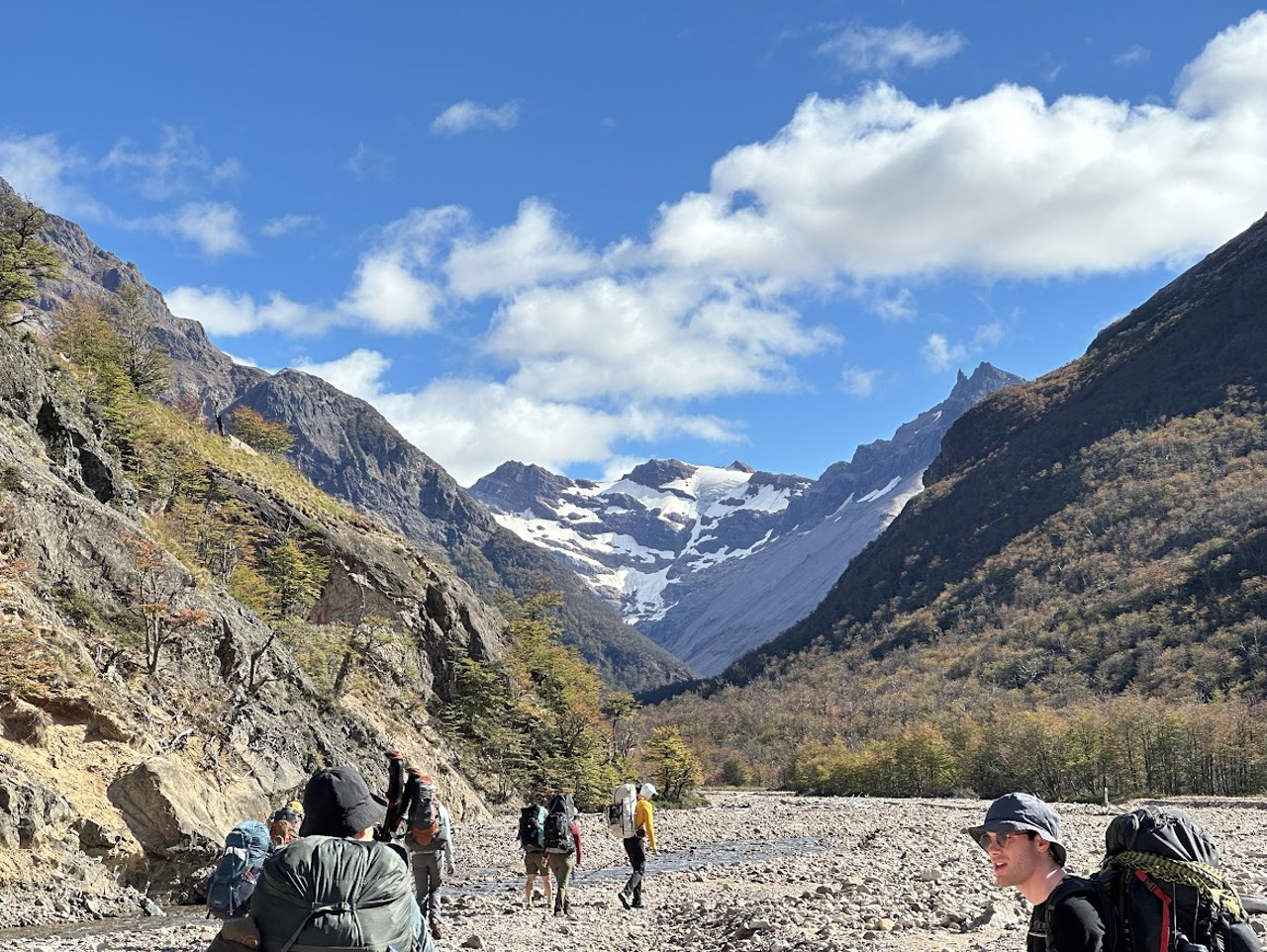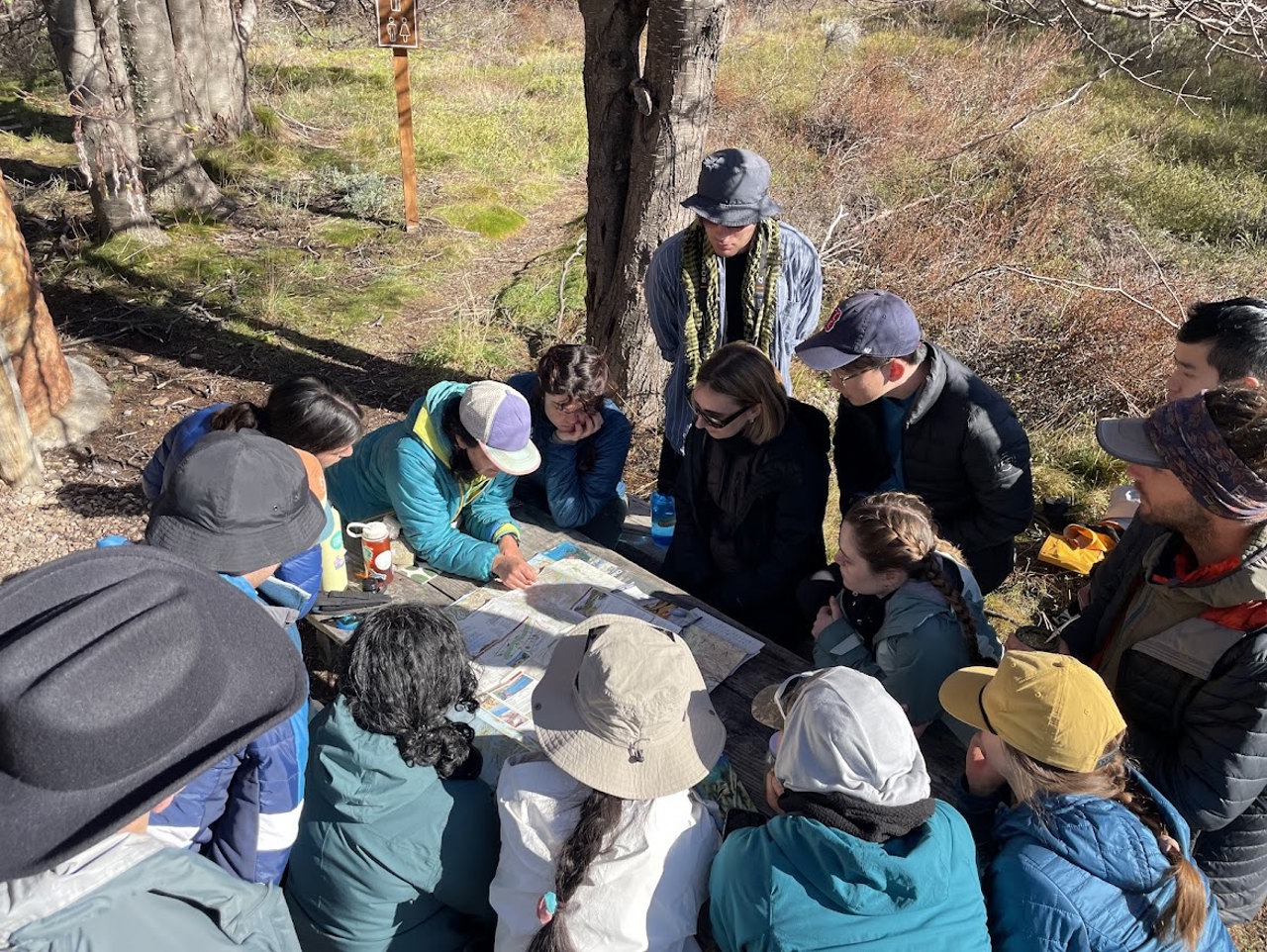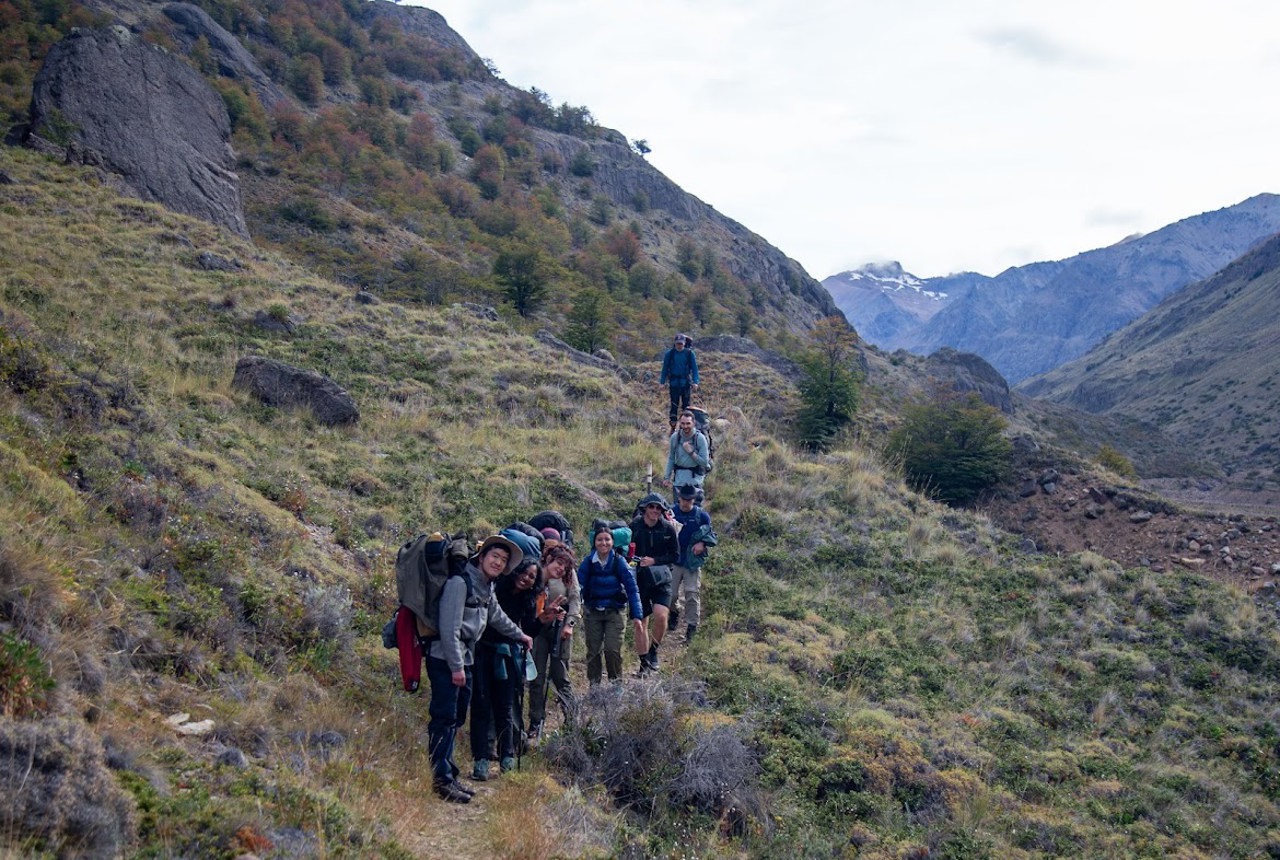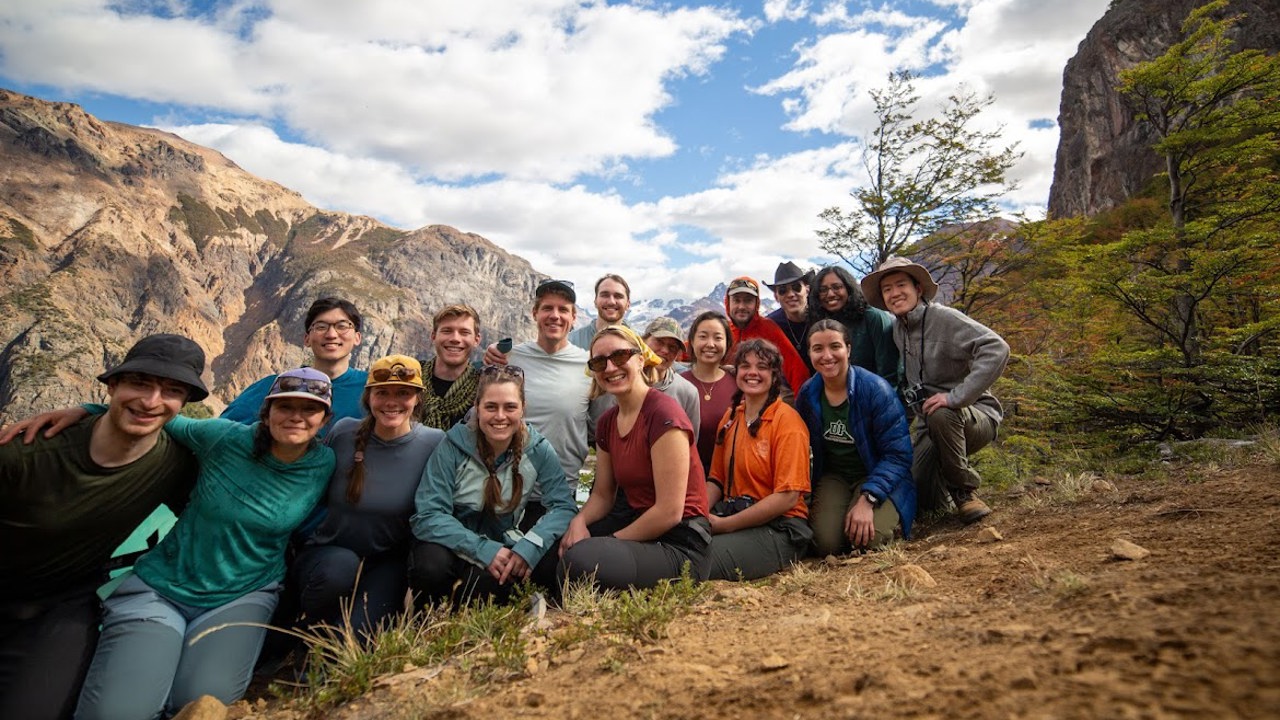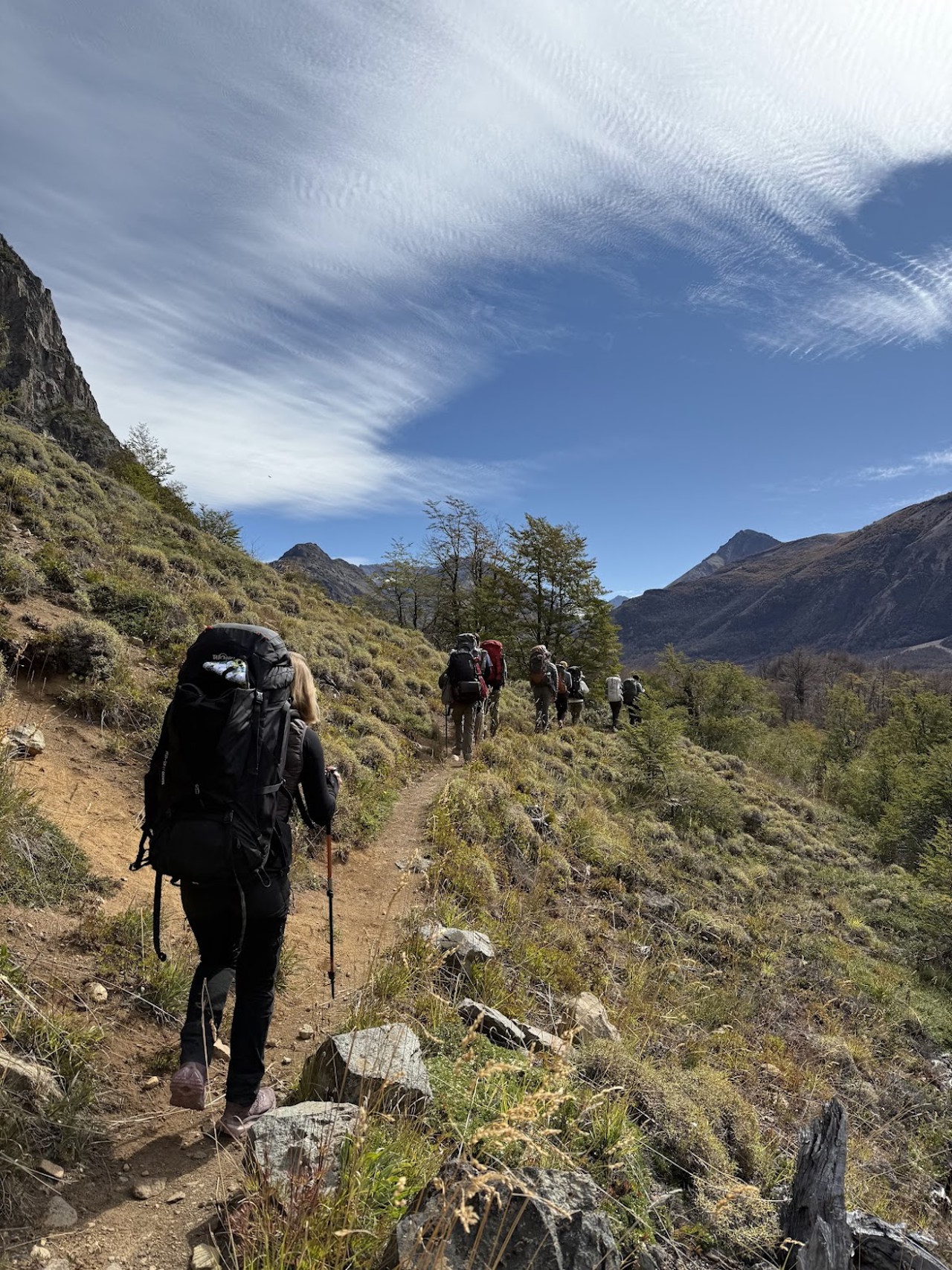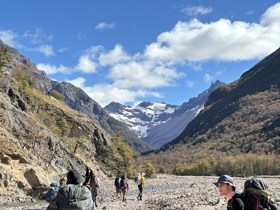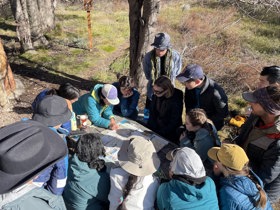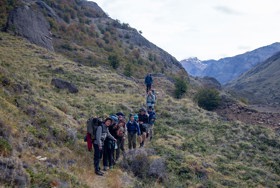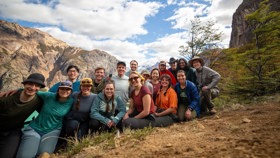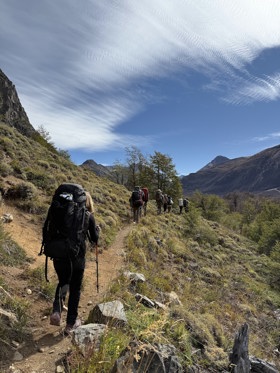La leyenda dice, “El que come Calafate, siempre vuelve.” The whisper echoed softly through the thorny shrubs that lined the trail, then vanished into the valley’s cool, still air. The legend says, those who eat Calafate always return to Patagonia. As if to ensnare the promise before it could disappear, each scholar reached out with cupped hands. They waited eagerly for Karen, undoubtedly the most expert and enthusiastic local guide, to drop a few deep-blue berries into their palms. The moment felt fleeting, but sweet, too – just like the berries.
Perhaps, had they never even found the Calafate, the scholars might still find themselves returning to this place one day. Such was the welcoming allure of Chile’s Patagonia National Park, a majestic landscape replete with coexisting contradictions. According to intrepid expedition leader Ben Wilcox (Illinois & Exeter 2013), the refuge remains one of the last places on Earth “truly untouched” by human society. Yet, paradoxically, this noble attribute makes Patagonia seem strangely hospitable to the well-intentioned adventurer. The edible Calafate berries abound, absent any poisonous lookalike. The stream water arrives already potable, ice-cold, and crystal-clear, flowing swiftly from imposing mountain glaciers. Conversely, those origins themselves mimic frozen waterfalls, dripping statically over sheer cliffs.
It was as nomadic members of this wonderful ecosystem, when March went out like a lamb, that both Rhodes Patagonia 2025 trips learned to move through a place “with style” and cultivated a profound respect for their natural environment. Two back-to-back (for the first time!) teams of scholars endeavored to navigate new challenges together, whether that meant cooking delicious meals with clever outdoor strategies, sharing the burden of backpacking communal supplies, or making camp anew each night. Lifelong friendships were forged, then strengthened, during sincere reflective pauses, and laughter proved plentiful as well (just ask an insider about “El Gringo Loco,” or the constellation that the ancients aptly named “Triangulus”).
Beyond the lenga forests of Patagonia, this powerful sense of community persists. Almost half the scholars from both trips ventured afterward to Chile’s Atacama Desert, the world’s highest and driest, to continue their journey in a starkly different biome. With the help of the Rhodes mailing list and alumna Leah Crowder (Arizona & University 2019), some arranged an institutional tour of the famous ALMA observatory up in the Andes.
Later, once back home in Oxford, participants organized several storytelling sessions. These included a talk from author and alumnus T.A. Barron (Colorado & Balliol 1974), who funds the Patagonia trips for Rhodes Scholars as part of his Travel Program for Environmental Stewardship. Scholar Yan Chen (China & St. John’s 2019) revealed a particularly poignant perspective: “Although my pack is off my back for now, the rejuvenating strength of nature, the people and the memories we’ve created together, the quiet and steady joy of being – all of this and more, I will continue to carry with me and within me. Just as nature is bountiful in all its infinitude, so is everything that Patagonia has granted me.”
Should you ever meet a trip alum, transformed by a voyage through the Patagonian wilderness, you’ll surely enjoy hearing their tales firsthand. They may recount how Diego, local guide and explorer extraordinaire, could spot elusive pumas (two of them!) and condors with his eagle eye. Or maybe they’ll tell you about the brilliant night sky, Patagonia’s natural observatory – graced with so many shooting stars, they realized they had nothing left to wish for.

